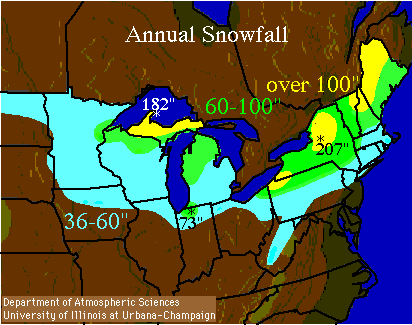
The southern and eastern shores of the Great Lakes of North America are notorious for the heavy snowfall they receive each winter (Fig 1), especially from late November to early January. This is due to what is known as the lake-effect snow, and it may lead to large regional differences. For instance, 50 cm of snow may accumulate over the course of a few days near the shore, and 50 km from the lake shore the ground may be bare. Lake-effect snow occurs elsewhere as well, e.g. near Lake Baikal in Russia, but nowhere is it so pronounced and has it such an effect on ground and air transportation.

Last week we were getting Lake Effect from Lake Erie which is unusual. THe bands were very strong and went in land much further than usual.

Lake effect influences our every days- we could get a lot or nothing. We can get snow when there is no storm moving through. we can get inches and feet of snow thanks to the big lake Producers. As soon as Lake Erie freezes over the Lake effect ends. Lake Ontario is much deeper and does not tend to freeze over ever.
No comments:
Post a Comment